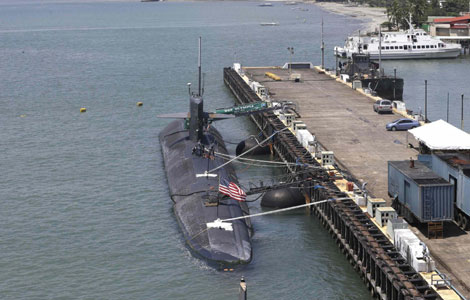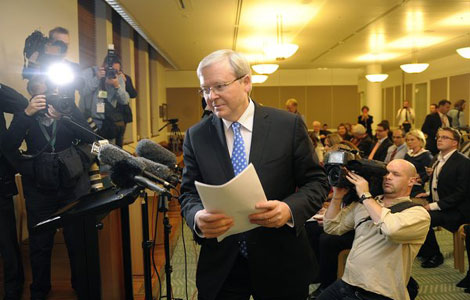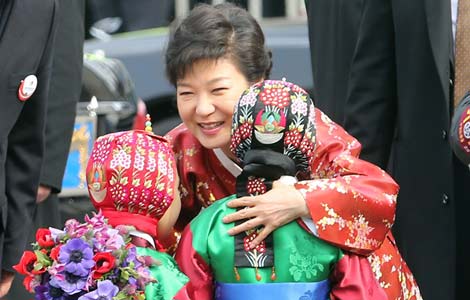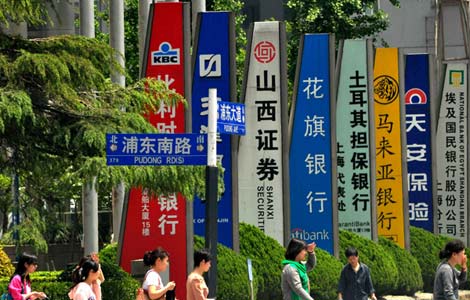China 'most promising' in FDI
Updated: 2013-06-27 03:06
By Li Jiabao (China Daily)
|
||||||||
|
 |
|
Outdoor ads for foreign and Chinese financial institutions are seen in Shanghai. Chinese companies are investing broadly in industries across the world, according to a United Nations Conference on Trade and Development report. YAN DAMING / FOR CHINA DAILY |
Capital outflow continued to grow in 2012, reaching a record $84 billion
China moved up from the sixth to the third place in 2012 in terms of outward foreign direct investment — after the United States and Japan — while a recent survey listed the world's second-largest economy as "the most promising source" of FDI, according to an annual report of the United Nations Conference on Trade and Development.
The organization's World Investment Report 2013 — subtitled Global Value Chains: Investment and Trade for Development — was released on Wednesday.
In 2012, FDI outflow from China continued to grow, reaching a record $84 billion, while total outward FDI from East and Southeast Asia rose 1 percent to $275 billion amid a sharp decline in global FDI outflows, the report said.
China's outbound direct investment into non-financial sectors increased 20 percent year-on-year to $34.3 billion in the first five months of the year, while spending surged 28.6 percent year-on-year to $77.22 billion in 2012, according to the Ministry of Commerce.
"China's outward direct investment grew at a striking pace," said James Zhan, director of the investment and enterprise division of the UNCTAD. "Driven by multiple goals of exploring markets, enhancing corporate performance, acquiring natural resources and strategic assets, Chinese companies made very broad outward investments in different sectors and regions. It's worth noting that Chinese investment in the overseas infrastructure sector increased very fast."
Liang Guoyong, an economic affairs officer at the UNCTAD's investment and enterprise division, said that Chinese companies have become the targets of investment protectionism due to their fast-growing overseas investments, as well as the broad scope of the spending.
"The motivation of getting natural resources and strategic assets, including technologies and brands, easily left Chinese companies as the targets of protectionism, as China, at present, tends to invest in Europe and the US for advanced technology and brands," Liang said. "Mergers and acquisitions in the process often arouse employment concerns in the host countries. State-owned enterprises — the major drivers of China's outbound investment — were often easily targeted, which also accounted for the rising protectionism against China."

 Philippine, US start Naval exercise in S China Sea
Philippine, US start Naval exercise in S China Sea
 Supreme Court gay rights ruling celebrated across US
Supreme Court gay rights ruling celebrated across US
 Rudd returns as Australian PM after Gillard
Rudd returns as Australian PM after Gillard
 Brazil protests intensify before Confed Cup semifinal
Brazil protests intensify before Confed Cup semifinal
 Long lost weekend
Long lost weekend
 Park ready to charm China
Park ready to charm China
 Prices climb as police crack down
Prices climb as police crack down
 China 'most promising' in FDI
China 'most promising' in FDI
Most Viewed
Editor's Picks

|

|

|

|

|

|
Today's Top News
Proposed law puts curbs on family visas
Markets will stay volatile, continue to struggle: Expert
Promising outlook on US, China investment
US adoptees visit Chinese roots
Ecuador refutes Washington Post accusation
IBM to make Chinese job cuts
PBOC ends credit crunch, to go further
Snowden still at Moscow's airport, asylum pending
US Weekly

|

|







